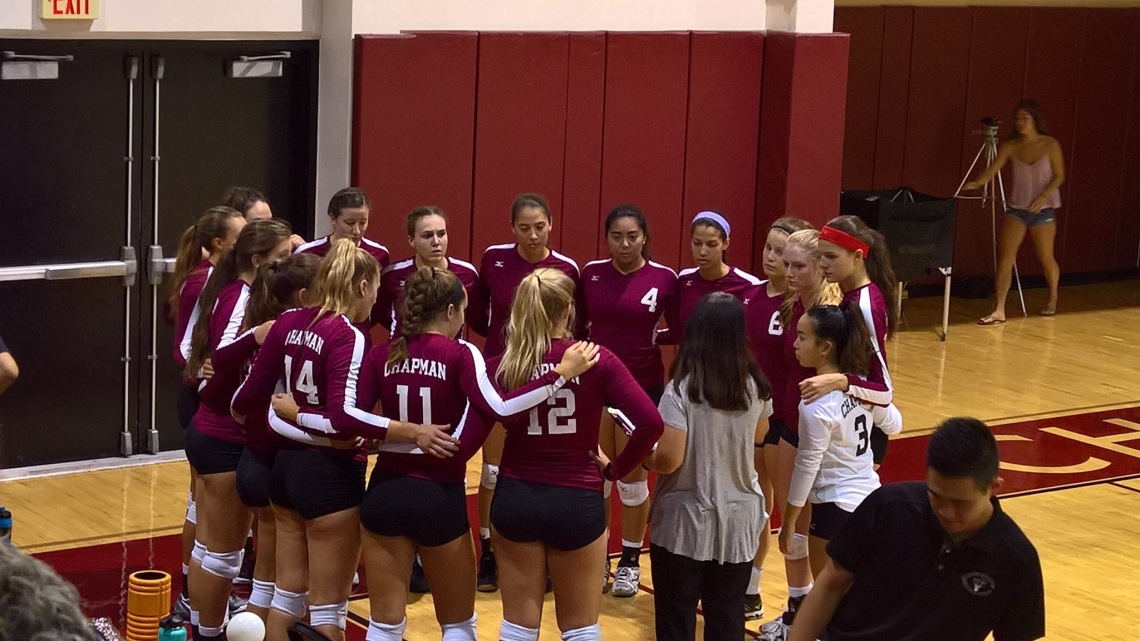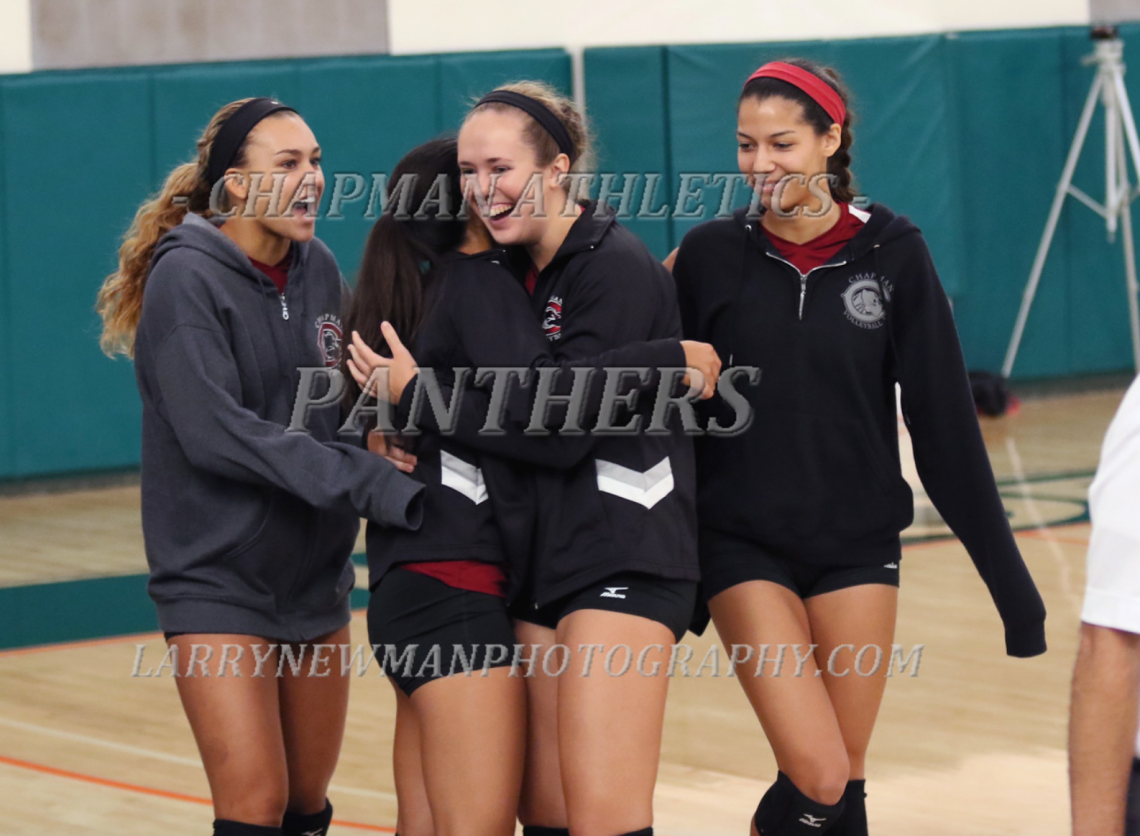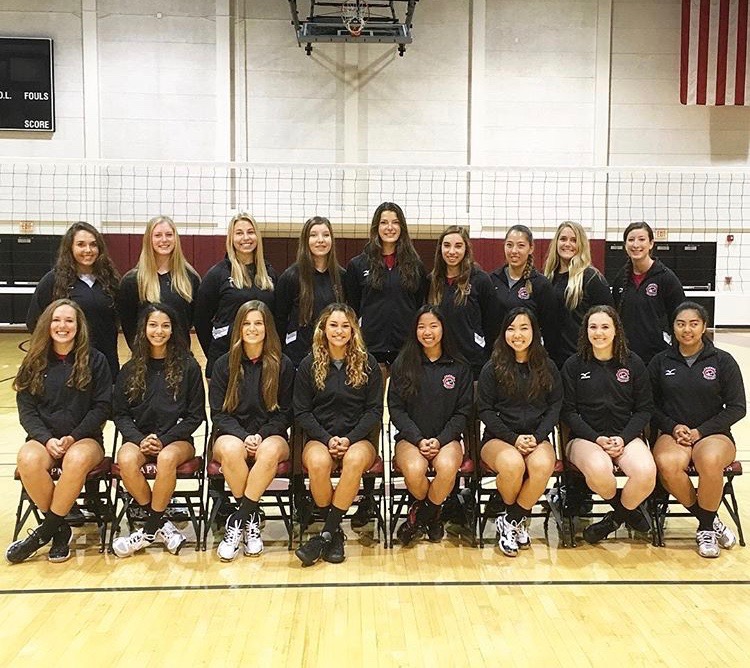I’ve been a volleyball player since I was eight years old. I’ve sweat in more games than I can remember. In high school I was the captain of my JV team; on varsity I was the starting setter. But playing volleyball in college was my ultimate goal. So when Coach Mary from Chapman told me I had a spot on the team, I was thrilled.
But when season started my freshman year, I sat on the bench. Hardly any freshman got to play, so I wasn’t too upset. I trained hard in the off-season, hoping my hard work would earn me a spot the next year.
But when sophomore season started, I was on the bench. Again.
Not playing kills me. I feel invaluable to the team–dispensable. My legs have grown stiff from standing on the side. My jersey is too clean; after games, I don’t need to wash it because I haven’t sweat in it. I’m frustrated; with my coach for hardly playing me, with the starters who take playing for granted, with myself for not being good enough. “After a while, sitting on the bench chips away at your confidence…It is hard to keep thinking you could play when continually cut down and told you are not good enough,” says sports psychologists Robert J. Rotella and Douglas S. Newburg. My mind swirls with questions. Why don’t I get to play? Am I not as good as I think? It doesn’t feel fair. I work so hard–and only to stand on the side and cheer. I wonder: is this worth it? Is all my effort, commitment, and time for nothing? Why do I play volleyball, if I never actually get to play?
Should I quit?
But if I quit, who would I be if I wasn’t a volleyball player? I have played almost all my life. Without my teammates,who would I hang out with? If I quit, I’d never get to play organized competitive volleyball again. Is that what I want? These questions rack my brain, and there is no easy answer.
Quitting is easy. Staying on the bench is not.
It’s the Whittier game: our last game of the season. Skrillex’s angsty pump-up “Get Out of Your Mind” screams over the speakers, making it hard to hear Mary. She’s saying how she doesn’t remember the last time we beat Whittier at home. “But don’t let the crowd phase you. Let’s just play our game,” John adds.
If we win tonight, we move on to the SCIAC tournament. If we lose tonight, our season will be over. I don’t know if I want to win or lose. If we win, I know I won’t actually play in the tournament anyway. Winning means only more practice, less time, and more sprints. But if we make it to the conference tournament, it would be Chapman’s first time in five years. I want to share in that excitement; I want us to win.
I look up from the huddle; the gym begins to fill. The crowd grows more and more intimidating as fans trickle into the stands. Whittier’s side has at least forty; a dark cloud of black t-shirts. Chapman’s side is almost empty; six parents in white and red dot the left side of the stands. Gotta love the home team advantage.
But that’s where I come in. As a bench player, it’s my job to cheer so loud that it feels like we are playing at home. It may seem like a small role, but it is a necessary and important one. In a later interview with my coach, I wanted to know if our coach thought this too–if she believed that bench players were important to the team. Sometimes I feel like she overlooks the bench–she knows we are there, but she is focused on the starters, on winning games. I asked her. She told me this: “I think [bench players] are a big part, especially in away games when you don’t have a crowd. It’s up to them to get the 6 or 7 people on the court up and going.” I think she’s right–that bench players do impact the team, probably more than they realize. But it’s still hard to accept that as your role. During games, I constantly have to remind myself that my actions do impact the team; that even if I can’t control what happens on the court, I can control what happens on the bench. And if I want us to win tonight, I am going to have to be loud, and engaged, no matter what.
In the huddle, our sweaty arms are draped around each other; our bodies tense with anticipation, eyes and ears focused. “Just do our jobs girls. This game is ours girls, now let’s go out and get it.” We cheer and put our hands in.
I look around at my teammates. In this moment, I feel connected, needed. It feels better than standing on the side, watching. Here in the huddle, we are all equals. But we are equals in the game too. I have to remember that on the side–that I am just as needed. I am needed to make the starters feel encouraged–to help them believe that we can win this game. And I can do that; I will do that. Mary calls out the familiar “Chapman on three: one, two, three!” We yell “CHAPMAN!” our hands flying in the air.
In a quick rush of movement, giving last-minute advice and high-fives, we pump up the starters as they run back to the court.
“Here we go guys!” “Let’s go!” “Yeah Linds!” “Go Court!” “Go Chapman!”
The starters take their spots, and we return to ours: the sideline. The same seven girls on the court, the other eleven of us on the side. We take our familiar places–the same order we have stood in all season–and face the court, ready to cheer.
One team, but two teams: those who start, and those who don’t. Both within, and without.
All year I’ve tried to make our bench more engaged–to be louder, to focus on the play. Last year during games, some girls would complain the whole game, only occasionally cheering. But that’s being a bad teammate. I think that if I can’t be a good player, I can at least be a good teammate. Last year as a freshman, I just let it slide; I didn’t want to offend any of the older girls by speaking up. But not this year. This year, I’ve become the leader of the bench; making being on the bench fun, making being loud “cool.” The older girls have even joined in. This game, I’m going to get everyone to cheer–we need everyone if we want to win. Right now, that’s my role. And I’m going to do it well.
The excitement builds as the glowing scoreboard counts down. Ten seconds left. Whittier walks out, matching in white jerseys. The crowd hushes in anticipation.
It’s game time.
“Tweet!” blows the referee on her shiny silver whistle–the sharp noise resonates in the hollow suspense of the gymnasium. All eyes are on her. The score is 14 to 13, in the fifth set. This is it; match point for Chapman. We’re up, but Whittier isn’t going down easy. This point decides who goes to playoffs, and whose season is over. This is it. “Thump thump thump” the server bounces the ball–focused. “Thump thump thump” goes my heart. I’m not on the court, but I’m still invested. I want us to win; we all want to win.
At first my teammates were quiet–excited, but quiet. Then I started cheering. I screamed louder, jumped higher, clapped harder. And soon enough, the other bench players joined in. We had lost the third game, and needed to win the fourth to make it the fifth–otherwise Whittier would have just won. We were loud, and the starters felt us–picking up confidence, hearing our voices above the Whittier fans. We won game four; now we just got to win game five.
“Come on Sarah!” I scream; my voice cracks from over-use and high emotion. My teammates join in. Casey yells “Here we go girls!” Kiley screams “Push one!” Jess joins in with: “Let’s go Chapman!” The chorus of our voices breaks up the quiet, stirring up motivation. In this game, our whole bench is invested. In unison we clap and stomp; working together, just like the players on the court. Right now we are quiet. We feel on the edge of winning–it’s like a secret wish we feel inside, but are too timid to say out loud for fear of it not coming true. This is game point. It all comes down to this.
Sarah throws the ball, jumps, and swings. The gym is silent. “Pack!” goes the ball on contact–it soars. Our eyes trace its trajectory; over the ponytailed heads of my teammates, above the white net, floating down onto Whittier’s side. But it floats too far; passing above their black uniforms, and landing with a hollow “pack” just outside of the purple endline. The stiff-shirted line ref shoots her red flag into the air, calling the ball out–point Whittier. “And that’s a point for the Poets!” croons the announcer over the microphone. “14 to 14: it’s all tied up.”
The home crowd launches up from the bleachers, arms clapping, hope restored. Whittier celebrates; mouths open, eyes closed, shouting, high-fiving, jumping. They’re not going down easy.
“Come on guys, one pass!” After five games of cheering, my voice is gone. But I’m not going to stop cheering now–not when my team needs me. I may be on the sideline, but I am on this team. And we’re not going down easy either.
It’s Whittier’s serve. The gym is quiet, waiting. The florescent glow of the lights on the shiny floor reflects up in blurry spots of white. The wooden boards creak in the silence as number two trots back to the service line, blonde hair whipping back and forth. She takes the ball, and takes in a breath. Her eyes are squinted, focused. She tosses it; the ball spirals upward; she jumps and swings. The ball shoots into the air, and suddenly, into the net. Point Chapman. 15-14. Game point again.
I scream–loud and smiling. We jump around, clapping. Casey squeezes my arm in excitement, smiling. Kiley looks at me and yells: “Here we go Panthers!” I step out from the line, and look down the bench–the signal we are about to start a cheer. I start it, my voice loud and raspy: “We got that for free, cha-ching!” Everyone screams–we want to win, bad. Our faces are wild and happy. Just one more point.
It’s our serve again. Cheri’s up. Her face is red and dripping. “Come on Cher! Here we go girl!” Let’s go Cher, one point; one good serve. She jogs to the end line. She faces the court, ball in hand, taking a deep breath in. She stands on the line. The game is on the line. The conference tournament is on the line. The gym is all silence. She serves.
The ball bullets over–it’s a great serve. Fast and hard it flies over the net, right at their left back player–number four. Number four stares, eyes wide open. She puts out her platform, ready to pass it. “Pack” goes the ball as it smacks her forearms. But the ball slides of sideways, side-spinning off of her arms, and trickles down to the ground. “Thud.” The ball hits the floor.
Match over. Chapman wins.
On the side we jump into the air in unison, like toast popping up from a toaster. I try to yell, and I realize that I’ve been holding my breath. The gym is all noise and movement; in the stands our fans cheer, waving their hands and hugging. We won. We sprint onto the court in a blur of bouncing ponytails, red and white; hugging, jumping, cheering, together. We group hug with the starters: game players and bench players, together. In this moment, it doesn’t matter who started. It doesn’t matter who played. We needed everyone to win, and we all deserve to celebrate.
This is why I play–for this feeling. For this joy of being on a team, for the high that comes from working together and succeeding. I’m smiling. This is why I stay.
What I’ve learned from my two years of bench warming in college is that “It’s not the starters that are the real warriors on a given team,” as Dr. Allen Goldberg, Sports Performance Consultant says. All that the starters have to do is play. But all of us can play; in order to even make it to college volleyball we all have to be good. The emotional drain, the break downs, the frustration–that’s the hard part. And starters hardly experience that. So don’t believe anyone when they say being on the bench is easy. It’s hard; it’s a fight; it’s an internal war.
And as bench players, you can’t rely on your coach to tell you that you are good; starters don’t tell the bench how great they are. Bench players have to have a fierce, selfless commitment. As Robert J. Rotella and Douglas S. Newburg say, a bench player’s “commitment must be strong in order to endure those times when playing time is simply not available.” We tough it out with no reward. That’s harder than serving, hitting, or passing.
But even when no one tells you, know that you are valuable. I asked Lindsey, a starter, what she would say to the bench players. I didn’t know if she would be grateful or not. But I was surprised. She said that she would tell bench players that “You are important. You’re input is valuable. How you act effects how people on the court act or play…everyone is just as important as everyone.” Know that you are needed; you are valuable.
My coach surprised me too. At the end of her interview, Coach Mary looked at me with bright blue eyes, and said: “You’re a good bench player, Savy, you’re a good teammate.”
I smiled, blushing. “Thanks I really worked on that, like making my role.”
It felt good to know that this internal struggle did not go unnoticed. That I did make difference–and she noticed. I smile. It felt good to be recognized, but I don’t need her validation any more. Because I know that I’m a good bench player, a good teammate. And in that way, I have to know that I have succeeded. I can’t control if I play, but I can control how I feel about it. And that’s all that matters: that I am happy with myself, happy with my attitude, happy with what I have done.
Being on the bench is like a mirror; its self-reflective. It will teach you about yourself. It will show you how mentally tough you are. It will show you if you’re in it for yourself, or if you’re in it for the team. It will show you if you can, as Coach George Raveling says, “‘believe in,’ ‘trust in’ and then ‘buy in’ to [your] role.” It will show if you are willing to give up the glory; that you are willing to take the selfless job, and make it glorious.
It’s not easy, but it’s why I play. It’s who I am.
So even though at times I want to, I have decided not to quit. I’ve decided that if I am going to be a bench player, I am going to be the best bench player Mary had ever seen. I am not saying that being a bench warmer is suddenly easy for me, because it’s not. I am still frustrated. But I have come to appreciate the selfless role of the bench player; I respect the almost pathetic selflessness that it requires. And I have realized just how much every team needs a bench to succeed.
We don’t make the headlines. Our photos aren’t on the front page, and we aren’t interviewed after games. But we matter. We decide our own self worth; we decide how we impact the team. And you can choose to pout and quit, or you can decide that you aren’t in it for the glory, or the playing time. That you are in it for the real love of the sport, the team, the game. Seasons pass in a blur. How you chose to react–you’ll remember that for the rest of your life.
And I want to be a fighter. To be a giver. To be the best teammate. To work hard, because it makes me feel good. To have fun no matter what. To make college volleyball a great time in my life, no matter how many times I stepped on the court.
And that–those lessons I have learned–that makes it all worth it.

Photo: Larry Newman Photography

Photo: Larry Newman Photography




